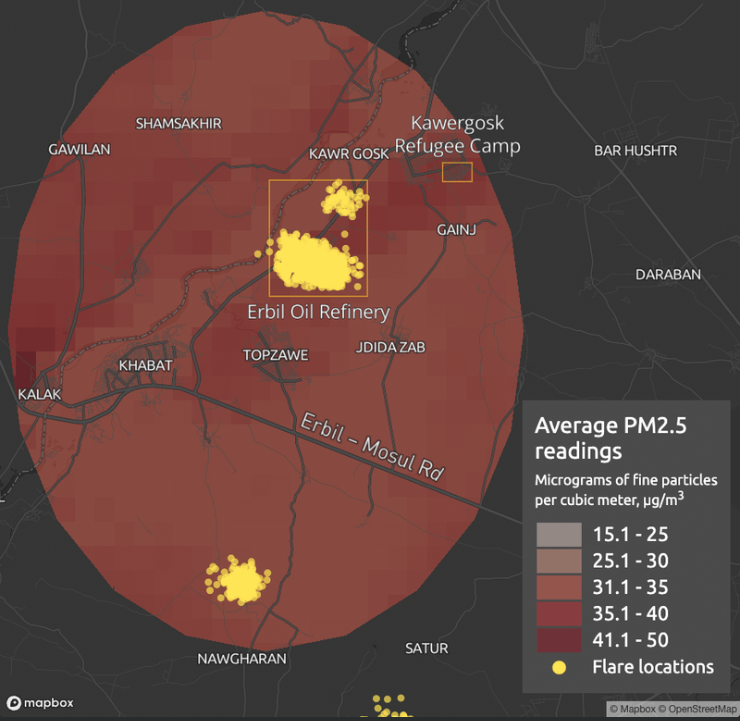Our article aimed to expose gas flaring at a time when the Kurdish government claimed to be eliminating the polluting practice, exposing nearby Syrian refugee camps to cancer-causing chemicals.
Visiting refugee camps, Kurdish industrial towns, Yazidi heritage sites, and oil and gas facilities themselves, we documented systematic and regular flaring occurring under the watch of the regional government.
Gas flaring is one of the leading contributors to both CO2 and methane emissions, releasing more greenhouse gases annually than the airline industry.
Flaring, where oil companies burn gas which can’t be captured economically, releases benzene and toluene, linked to premature birth, chronic lung disease, and cancer.
Whatsmore, gas flaring wastes billions of dollars every year at a time when energy security threatens the stability of countries worldwide.
As part of a World Bank project to eliminate all flaring by 2030, dozens of countries signed a commitment to eliminate all routine gas flaring by 2030: https://www.worldbank.org/en/programs/gasflaringreduction/publication/financing-solutions-to-reduce-natural-gas-flaring-and-methane-emissions
The minister responsible for the oversight of the flaring targets resigned during the course of our investigation. Open publication, the Kurdistan Regional Government extended the deadline to phase out routine flaring in Kurdistan, citing difficulties working with oil and gas companies.
The data visualisation featured in our article won AGU’s Data Visualization Award in 2022: https://dusp.mit.edu/news/christina-last-named-agu-grand-prize-winner-data-visualization
Al Jazeera subsequently published the piece after further investigation into cancer levels in the Kawergosk refugee camp, located close to gas flaring sites: https://www.aljazeera.com/amp/features/2023/4/19/refugees-claim-gas-flaring-cancer-link-northern-iraq
MIT Urban Planning highlighted the impact of the article: https://twitter.com/MITdusp/status/1603135989651804160
It was also broadcast on Kurdish TV and covered by Kurdistan radio stations.
After we published the initial investigation in Rudaw, BBC panorama released a documentary on gas flaring in Iraq.
Subsequently, flaring became an important topic at COP28, where nations renewed their commitment to eliminating gas flaring by 2030.
Iraq, due to its ageing infrastructure and decades of underinvestment, is one of the world’s leading contributors to gas flaring. US sanctions under previous administrations have left oil and gas facilities in disrepair.
Unfortunately, gas flaring continues in Iraq, where thousands of refugees and native Iraqis continue to be exposed to the health impacts of the oil and gas industry.

